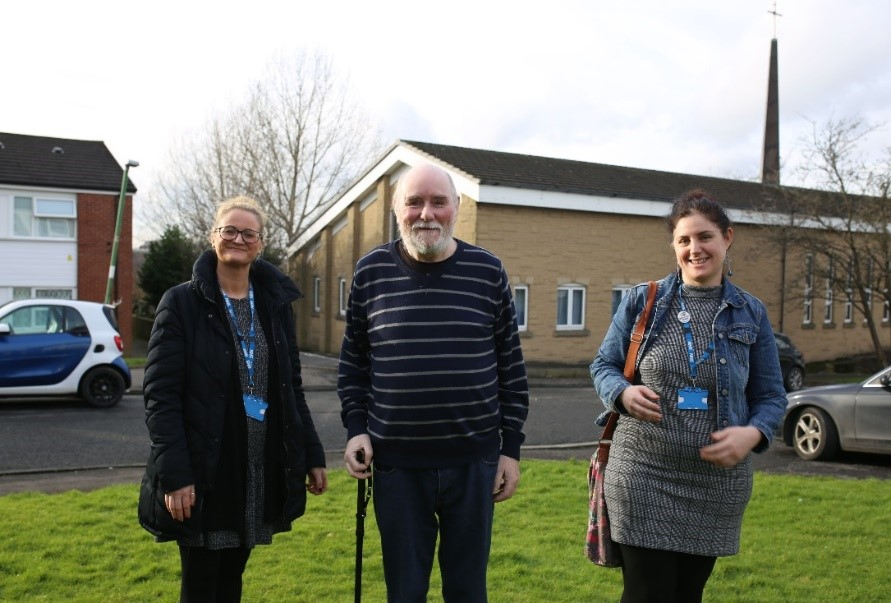Our community living skills mental health team has helped one determined man tackle a severe hoarding disorder, following increased episodes of depression and anxiety.
Steve Green, 71 from Accrington contacted one of our mental health teams after his three-year hoarding problem started to affect his daily life and relationships.
Hoarding is a disorder where someone acquires an excessive number of items with little to no monetary value, a condition that affects at least 1.3 million people in the UK.
Steve, a former care worker and amateur photographer was reduced to sleeping on a small section of his couch after his bedroom and bathroom became so cluttered, he was unable to access them. Taking a shower, washing clothes or making a cup of tea became unmanageable due to the amount of belongings stacked in each room.
Feeling trapped in his own home during periods of shielding and isolation due to the pandemic, Steve’s mental health began to deteriorate. Following assessment, The Mount in Accrington referred Steve to Ruth Hartman, occupational therapist and Steph Liggins, support time recovery worker at East Lancashire Community Living Skills Mental Health Team.
Steve said:
“I wasn’t living like you should do, I struggled to walk around any room because of the stuff piled high, and I knew I needed help. I was quite anxious to make the call, not knowing if I would be judged or embarrassed at the situation I was living in.”
Ruth and Steph began visiting Steve four times a week to help him gradually declutter his home and address his underlying mental health concerns.
Ruth said:
“When we first met Steve, it was really awful to see the conditions he was living in and just how much this was affecting his daily life. He was embarrassed to let anyone in his home and had completely isolated himself. His life has completely changed in such a short time and it’s hard to believe that his house was ever in that condition. Our service wasn’t just about the physical clear out, it was making sure we understood what made Steve tick, what his goals were and how we could support him to being himself again.
It’s thanks to his own determination that he has managed to make this transformation in record time. While his house looks amazing, the biggest difference has been in Steve as a person. It’s so heart-warming to see him so happy and thriving – he truly is living his best life and we’ll actually be sad to leave him as he’s been a pleasure to support and get to know.”
After six months of regular support from the team, Steve is recovering from his disorder and following the lifting of further Covid-19 restrictions, is back out in the community joining groups and meeting new people, helping to reduce the risk of falling back into hoarding habits.
Steve added:
“I feel like my life has turned around, it’s made such a fantastic difference. Ruth and Steph have been so good, they worked at my pace and helped me get back into my own bed after nearly three years living in the lounge.
I also get to see my grandchildren again after so long apart, now I have a safe space for them to come to. I can’t describe the feeling it gives you to get help, it feels marvellous really.”
If you need help with hoarding, or know somebody who does, you can find help and advice on the Mind website.
Watch Steve’s story below.

